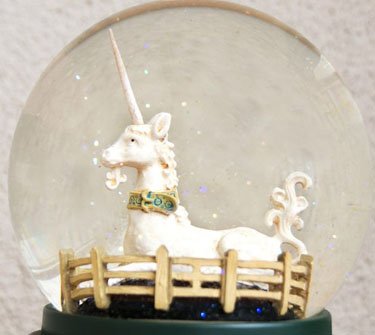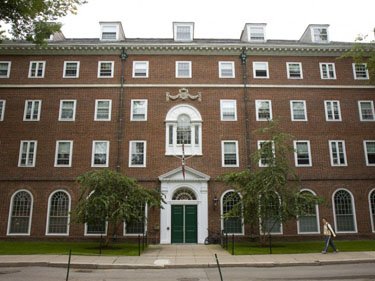Category Archive 'Millennials'
22 Oct 2019


Arnold Gingrich, once upon a time the editor of Esquire.
Long ago, Esquire used to publish articles celebrating masculinity and male interests, including contributors like Ernest Hemingway. The quality of those 1930s and ’40s issues was such that people now collect them.
Today, Esquire is an excruciatingly irritating voice of metrosexual soyboy hysteria endlessly denouncing Trump and grovelling apologetically on behalf of all mankind before the idols of politically correct wokeness.
Brian Patrick Eha notes that the same thing is happening today across the entire men’s lifestyle magazine genre and subscriptions are everywhere precipitously declining.
When the culture changes,†Esquire contributing editor Wesley Yang wrote earlier this year, “each of us must either seek an accommodation or choose a hill to die on.†He was reviewing Bret Easton Ellis’s White, a collection of jeremiads, many aimed, like poison darts, at millennials, the cohort Ellis has dubbed “Generation Wuss.†The voice of an earlier generation, Ellis, who is gay, finds himself shocked by—and contemptuous of—the weak-mindedness and quickness to take offense typical of some millennials. …
In June, Hearst promoted Esquire.com editor Michael Sebastian to replace Fielden as editor-in-chief. As with Pels at Cosmopolitan, the idea is to bring a digital sensibility to the print product—while making digital the top priority. Esquire, a source told WWD, will be getting “a full Cosmo.†I take this to mean that the trends identified in this essay will only accelerate, and that the commitment to social-justice ideology will only harden; that Esquire will soon descend into the sucking morass of what Yang aptly calls “woke clickbait.†No doubt the magazine will struggle on for a time, like a punctured blimp leaking helium, deflating while still aloft, but if it grows in prominence—if the metrics that men like Troy Young care about improve for a time—it will be only as a wounded airship, once high up in the atmosphere, grows larger in the eye as it sinks slowly groundward.
Just as one can’t reinflate a leaky blimp, there is little reason to believe that Esquire’s editorial quality will improve under Sebastian, however much he juices web traffic. The great men’s magazines may eke out a lucrative afterlife hawking clothes and branding nightclubs in India; but as magazines, they are dying or dead—and the dead do not improve.
RTWT
16 Oct 2019


Harvard has a traditional Fall Clean-Up, in which freshman student employees arrive early to make a few bucks tiding up Harvard’s residential houses in preparation for the arrival of the entire undergraduate student body.
Although cleaning dormitory rooms and bathrooms is work, Harvard tries to put an element of fun into it as well.
What is Fall Clean-Up?
For more than sixty years, Dorm Crew has welcomed Harvard first-years to campus for our annual Fall Clean-Up (FCU). Created in 1951, Dorm Crew is a student employment and leadership program that is entirely managed and operated by Harvard undergraduates. Today, Dorm Crew offers employment opportunities, leadership development, advising resources, and pre-orientation programing to more than 800 students annually. Each year, 300 incoming first-years join FCU to have fun and work hard while cleaning and preparing the dorms for student move-in. Throughout the week, students will have the opportunity to explore and engage with Harvard’s campus and community through various planned events. …
Year after year, students have found Fall Clean-Up to be a rewarding experience that offers a great community of friends and provides an unrivaled introduction to the diversity of the Harvard community, the aged beauty of Harvard’s student residences, and the vibrant life of Harvard Square. Under the guidance of our upperclassman captains, we aim to deliver a Fall Clean-Up experience that truly orients students to what life at Harvard is all about.
Some alumni report that they enjoyed the experience:
As I reflect back on my life, that first week or two of freshman year, with the bonding with my fellow freshman Dorm Crew members, was an extraordinary stress reliever as we found out about each other and that we were all scared to death that Harvard had made a mistake admitting each one of us! I will never forget those initial few weeks in Cambridge.” —Ray Peters ’69
“I loved FCU because I met some of my best friends at Harvard and found a community that has been really important to me throughout my time in college.â€
—Sarah E. Lagan ‘19
—————————
But the Harvard Crimson staff stroked its collective chin, and decided there was a PROBLEM here.
Oh, migod! Who would have imagined? Not everyone at Harvard is rich, some people are there on scholarship and need to take jobs in order to earn money. Everyone is not the same. It just isn’t fair!
Bedford felt out of place, just as the sight of trash in Murdock’s sink left him feeling neglected by the University. From the beginning, Bedford and Murdock felt that the University deemed them different from their peers.
It took Bedford some time to pinpoint exactly why he felt alienated. Amidst meeting other students and recovering from jetlag, he did not look around and think, “Oh, we’re all here because we’re poor and we need money.†At the time, he says he “had no conception of the†— here, his voice lowers in emphasis — “disparity that is present on this campus between rich and poor.†But shortly into his time at Harvard, he began to reconsider the way Fall Clean-Up functions: It distinguishes between the students who need to earn quick money for school supplies and those who do not.
Many of the students who end up participating in FCU would have liked to do other programs. “What turned me off about FUP at the time wasn’t what it was, but what it wasn’t. And it wasn’t a program that paid me,†Ibrahim says. “Fall Clean-Up gave me dollars, and I needed that.â€
During pre-orientation, some students can afford to do what they love. Others don’t have that luxury.
I’ve noticed the exact same problem in life after college. If you want something, if you want a home with electricity, heat, and in-door plumbing, you actually have to get a job and work to pay for all of it.
15 Aug 2019


Fellowship of the Minds posts a Millennial story from Georgetown Adjunct Professor of Public Relations and Journalism Carol Blymire.
In a series of tweets on July 12, 2019, Blymire recounted a story she overheard of a millennial “in her late 20s†in Washington, DC, getting feedback on something she had written from her boss, who is also female:
In office space near a client, a young woman was meeting with her boss. She was (by my estimation) in her late 20s.
The boss (also a woman) was giving her feedback and reviewing edits she had made on something this young woman wrote.
They had been speaking in low tones, but their volume got louder toward the end of the conversation because the young woman was getting agitated about a particular edit.
That particular edit was correcting the spelling of “hampster†to “hamsterâ€. Apparently she had used the phrase “like spinning in a hamster wheel†in this draft (presumably) speech or or op-ed.
The young woman kept saying, “I don’t know why you corrected that because I spell it with the P in it.†The boss said (calmly), “But that’s not how the word is spelled. There is no P in hamster.â€
Young woman: “But you don’t know that! I learned to spell it with a P in it so that’s how I spell it.â€
The boss (remaining very calm and professional), let’s go to https://t.co/n2ZU5Uuuy3 and look it up together. (mind you, this is a woman in her late 20s, not a 5th grader)
The young woman insists she doesn’t need to look it up because it’s FINE to spell it with a P because that’s HOW SHE WANTED TO SPELL IT.
The boss says, “Let’s look over the rest of the piece so I can explain the rest of my edits.†They do, and I can see the young woman is fighting back tears. The boss is calm, cool, and handles this with professionalism and empathy.
Boss says, “I know edits can be difficult to go over sometimes, especially when you’re working on new kinds of things as you grow in your career, but it’s a necessary process and makes us all better at what we do.â€
Boss gets up from table and goes to her office and the young woman can barely hold it together. She moves to another table in the common workspace area, drops all her stuff loudly on the table top, and starts texting. A minute later, her phone rings.
It was her mom. She had texted her mom to call her because it was urgent, and I’m sure her mother maybe thought she was in the ER or something. She then … PUTS HER MOM ON SPEAKERPHONE. IN THE WORKPLACE.
She bursts into tears and wants her mom to call her boss and tell her not to be mean about telling her how to spell words like “hamsterâ€.
The mother tells her that her boss is an idiot and she doesn’t have to listen to her and she should go to the boss’ boss to file a complaint about not allowing creativity in her writing.
The young woman kept saying, “I thought what I wrote was perfect and she just made all these changes and then had the nerve to tell me I was spelling words wrong when I know they are right because that is how I have always spelled them.â€
She then went on (still on speakerphone) to tell her mom I’m very great and office-inappropriate detail about how hungover she was and what she and her friends did with some guys the night before. Mom laughed and laughed.
The colleagues in and around the workplace kept looking at one another and some even put earbuds/headphones in/on. It appeared as though this was a regular thing with her.
She ended the conversation asking her mom how she should bring this up with the boss’ boss. “I mean, I always spell hamster with a P, she has no right to criticize me.†[…]
Based on the way her mom spoke to her and they way they spoke to one another, it seemed as though this young woman had never been told she was anything but perfect by family. […]
Her boss seemed as dumbfounded through the conversation as I was in overhearing it.
I think I was most perplexed by the insistence of wanting to spell something the way she wanted to because SHE WANTED TO, ignoring the fact that there are rules and dictionaries. And seeming offended that anyone would suggest the use of an outside resource as reference. …
RTWT
HT: G.W. Bowen.
27 Jul 2019


Left: Rachel DeLoache Williams; right: “Anna Delvey,” really Anna Sorokin in Marrakech.
She posed as a German heiress planning to lease for her own foundation a Manhattan building for a visual-arts center dedicated to contemporary art, which would also house a lounge, bar, art galleries, studio space, restaurants, and a members-only club.
She met fashionable young New York professionals at chic restaurants and bars where, Ooops! her phone failed to work when trying to charge the check, and she hadn’t bothered carrying a credit card. So her new friends obliging picked up the tab this time.
She took the dazzled Rachel DeLoache Williams, who worked at Vanity Fair, on a little outing to a [£5,485 a night] villa she’d booked at Marrakech. But it did not work quite the way Rachel was expecting.
Stylist:
On the morning we were supposed to leave, she asked for my help booking the flights because there was a problem with her card. I didn’t think too much of it; this was just the way she was: disorganised. I’d seen her book things last minute so many times and I knew she would reimburse me.
From there, it was a trickle effect. At the airport, Anna ‘accidentally’ checked her wallet, which meant I had to pay for everyone’s dinner (she brought a photographer and her personal trainer, too). Her card still wasn’t working for the rest of the trip, so I began adding things to a tab (dinners, kaftans). I had presumed our villa was pre-paid, but at some point the hotel manager began asking to speak with Anna.
The penny drops
On the third day of the trip, I walked into our villa and the hotel managers were standing in the doorway. Anna was sitting with her phone on the table in front of her, like she was waiting for something. A call, apparently. One of the managers turned to me and asked if I had a credit card. They were firm. I looked to Anna and she said ‘use it for now’. My stomach sank. It would have felt weirdly ungrateful to show my annoyance, so I gave it to them. I was told the charge was only temporary – it wasn’t – and I left the next morning, a day before she did.
This is when everything started to unravel. Every day I asked her for the money back and every day she promised it would arrive. I thought she was just doing a characteristically bad job of following through with logistical things. It was $62,000 [about £48,800] in total.
This went on for an excruciatingly long time – two months – and my life started falling apart. I was having panic attacks constantly, not sleeping. It took me a strikingly long time to even ask myself the question: what if she never pays you back? Because that would mean I’d have to look at how that would impact my life, and I knew if I did that, I would’ve lost it. I already wasn’t saving any money – New York is expensive, and I was barely breaking even – so to be set back 60-something thousand dollars? It felt like, ‘I am never going to get out of this hole. This is where it ends for me. I’m not going to get to buy a house, I’m not going to get to be a real adult, I’m never going to have kids.’
——————-
More book excerpts at Crime Reads.
But, cheer up, Rachel wrote up the story of her misfortunes as a book, My Friend Anna: The True Story of a Fake Heiress, and she will probably come out ahead in the end.
24 Jul 2019


Taki recently had some unkind thoughts about today’s rising generation, all their talk about trigger-warnings and microaggressions, their complaints about being made to feel “unsafe.”
[L]et’s [discuss] the young, or snowflakes, as they’re called nowadays. Last year I spent a week on the beaches of Normandy in the company of some military historians preparing their books for this year’s 75th anniversary of D-Day. We visited the first German bunker to be hit right on the edge of the beach about fifty yards from the sea. James Holland, the noted British historian, pointed out that the first Victoria Cross was awarded to a Scot grenadier who blew up the bunker, killing all the Germans inside. I pointed out to him that the defenders were mostly men over 50 and some youngsters of 16 and 17. They had a couple of machine guns and a Panzerfaust—bazooka—as weapons. Looking out, they had seen 6,700 ships or so firing their huge guns at them. No one had run. They had stood and died at their posts. It was not a popular argument—everyone was British—but the courage of the German soldier was not disputed. Nor, of course, of the invading American, British, and Canadian troops.
What does the above have to do with the hissy fits sparked by our youth of today? Everything! The men who fought on the beaches 75 years ago never saw themselves as worthy of special treatment. None of them were “offended†or “upset†when ordered to jump into the water under a hail of bullets and hit the beaches. Ditto the Germans when ordered to stand and fight against incredible superior odds. When the snowflakes complain about some rape scene in a long-ago-published book, and the fact they had not been warned about it, I wonder what the men who fought on those beaches must think. (Thank God for the brave men, very few are left alive to read such BS.) But dear readers, try to imagine these phone zombies, selfie addicts, and me-me-me gamers of today being ordered to attack or defend those beaches. They would expire before the first shot was fired. Long live us oldies.
08 Jul 2019
“O brave new world, That has such people in’t!”
How many years of school? How many hours a week working? For this?
But, hey! they get access to all the great SF restaurants!
HT: Vandeleun.
21 Jun 2019


Not a bloody chance in Hell.
But here, in the Age of the Millennial, there are scrimshankers out there marketing a line of “Hemingway Accoutrements,” including, no less, a 1.7 oz (tiny!) bottle of “Ernest Hemingway Signature Eau de Parfum Cologne” for $65!
There’s clearly too much money in Brooklyn and in Portland.
Catch the ad copy:
The one-of-a-kind fragrance of the Hemingway Accoutrements Signature Eau de Parfum Cologne is a transcendent fragrance that will keep you returning time and time again.
Each satisfying inhale calms the soul with its rich, deep and sophisticated blend that opens with a surprising yet satisfying aroma of grapefruit. Very much like the citrus notes of the Daiquiri named after Ernest Hemingway himself.
While the grapefruit note lightly persists throughout it generously gives way to a complex fusion of deep bourbon, classic cedarwood, and rich full grain leather.
Underlying that richness, you’ll enjoy the warmth of honey-like amber, smooth sandalwood, fine tobacco, and Madagascar vanilla.
As you savor each whiff, you can’t help to think that this must have been the aroma that permeated the atmosphere of Papa’s Havana home.
What! no Hoppe’s Number 9?

20 Apr 2019


Alyssa Ahlgren has some choice words for complaining leftists.
I’m sitting in a small coffee shop near Nokomis trying to think of what to write about. I scroll through my newsfeed on my phone looking at the latest headlines of Democratic candidates calling for policies to “fix†the so-called injustices of capitalism. I put my phone down and continue to look around. I see people talking freely, working on their MacBook’s, ordering food they get in an instant, seeing cars go by outside, and it dawned on me. We live in the most privileged time in the most prosperous nation and we’ve become completely blind to it. Vehicles, food, technology, freedom to associate with whom we choose. These things are so ingrained in our American way of life we don’t give them a second thought. We are so well off here in the United States that our poverty line begins 31 times above the global average. Thirty. One. Times. Virtually no one in the United States is considered poor by global standards. Yet, in a time where we can order a product off Amazon with one click and have it at our doorstep the next day, we are unappreciative, unsatisfied, and ungrateful.
RTWT
09 Apr 2019


Rod Dreher
Over the weekend, I met a friend in Cambridge, Mass., for lunch. He’s a foreigner studying at Harvard. He told me that his experience there has been quite an education in how the American elite constructs its worldview and reproduces itself. In fact, that is perhaps the most important lesson he has learned from his experience at the top US university.
I’m writing this with his permission, but I want to be careful about what I say, to protect his privacy. In general, he said it has been a real shock to him — and to the other foreign students in his circle — to observe how “coercive†(his word) the intellectual atmosphere at Harvard is, at least in the areas he’s been studying. He explained that it is quite simply impossible to discuss certain things, and ask certain questions, because of the ideological rigidity of the American students and their teachers. My friend made clear that this is the consensus view of the foreigners he knows there, whether they are on the left or the right.
My lunch companion said that the elites formed by this most elite American university are people who have set up a world in which they never have to encounter an idea, or a person, that they don’t already endorse or embrace. We were joined at the table by a third person, a left-wing Baby Boomer who works in a very liberal Boston institution (I’ll not name it to protect his privacy), and who said that he finds the ideological rigidity of Millennials and the generation behind them to be insufferable. Such joyless, humorless, incurious people, he said. The foreigner, though a Millennial himself, agreed.
On our way to the restaurant, I had mentioned to my foreign friend something I’ve heard from several of you readers of this blog who are conservative academics: that as long as old-school liberals remain in charge of faculties and academic institutions, there will be a place for right-of-center scholars. But when the Jacobin-like younger generation moves into leadership, that will be the end. He agreed, and brought up several examples from academia and academia-adjacent institutions (e.g., publishing). He told me one story about a left-liberal scholar he knows who has been turned into a non-person for questioning out loud some of aspects of au courant progressive dogma. I’m not easy to shock about things like this, but this particular story — my foreign friend named names — was for me a sign of how advanced the ideological militancy has become.
It recalled in fact an e-mail conversation I had last week with a liberal journalist friend who hates to see this closing of the left’s mind. My journalist pal said that he’s seeing on the left a moralistic refusal even to consider ideas, people, and data that contradict these leftists’ moral code. Understand: it’s not that this new breed of progressives disagrees (though they do); it’s that they believe, and believe strongly, that even to confront information that contradicts what they prefer to believe is intolerable.
Said my friend: “No wonder these people are always shocked by the latest developments in politics. They refuse to see the world as it is.â€
RTWT
06 Mar 2019


Oh, me! Oh, my! Can Harvard students possibly bear up and survive in a climate in which their own House Master/Faculty Dean (and Law Professor) proposes to represent a cad like Harvey Weinstein accused of numberless cases of crude advances, sexual harrassment, and generally being a masher?
Harvard Crimson asks that important question, and apparently is asking it on behalf of the management of Harvard itself. Presumably in the case of unfavorable responses, Harvard’s Administration will lay in a copious supply of smelling salts, fainting couches, and gallon jugs of Lydia Pinkham’s. There will doubtless as well be long queues of desperate Harvard students lining up for counseling.
“Doctor, how could he? How could he represent that… that beast?”
Harvard College’s institutional research office sent an anonymous, online survey to Winthrop House residents Tuesday as part of a review process aimed at addressing students’ concerns about Faculty Dean Ronald S. Sullivan, Jr.’s decision to represent Hollywood producer Harvey Weinstein as he faces charges of sexual assault.
The survey asks students a series of questions about whether they feel welcome in the House. It also asks them to score Winthrop on a five-point scale based on whether they believe the House is “hostile†or “friendly,†“contentious†or “collegial,†and “sexist†or “non-sexist,†among other metrics.
Dean of the College Rakesh Khurana announced that former Dean of Freshmen Thomas A. Dingman ’67 would lead a “climate review†in an email to Winthrop residents on Feb. 25. Khurana wrote that the College decided to launch the review after hearing concerns surrounding support structures for students in the House following Sullivan’s decision to defend Weinstein.
Harvard College Institutional Research wrote in its Tuesday email that in trying to examine the “climate†of Winthrop, the survey will use Pennsylvania State University professor Sue Rankin’s definition of climate: “the current attitudes, behaviors and standards of faculty, staff, administrators and students concerning the level of respect for individual needs, abilities and potential.â€
In response to Sullivan’s decision to join Weinstein’s defense team, some students started protests and wrote open letters calling for his removal as faculty dean.
The survey sent Tuesday begins with a question about students’ level of satisfaction with the House’s climate. It continues by asking students to indicate their level of agreement — from “Strongly Agree†to “Strongly Disagree†— with a series of statements evaluating their experiences in the House.
Some of the statements read “I feel I belong in Winthrop House†and “Winthrop House has a strong commitment to diversity, equity, and inclusion.â€
Another question asks students to rank the House on 12 different characteristics including disrespectful or respectful, elitist or non-elitist, homophobic or non-homophobic, and racist or non-racist.
The survey closes with two demographic questions and a space for additional comments.
The College will use the results gathered from Winthrop affiliates to guide any further action, Khurana wrote in his original email.
RTWT
I try to imagine the Yale Daily News, back in 1966, inquiring if we “felt welcome” in our Yale freshman dorms or residential colleges, and I have to hold on to the arms of my chair not to fall out of it laughing.
Can you imagine not feeling welcome in one of the poshest, most luxurious undergraduate colleges in the country and the world?
I am reminded of the comedy film, in which the upper class mother points out to her unhappy adolescent daughter: “You know, you will never again, in the rest of your life, be this rich or this thin!”
A friend of mine used to remark ruefully that life after Yale amounted to constant struggle to try to live as well as you did as a Yale undergraduate.
Your are browsing
the Archives of Never Yet Melted in the 'Millennials' Category.

Feeds
|














